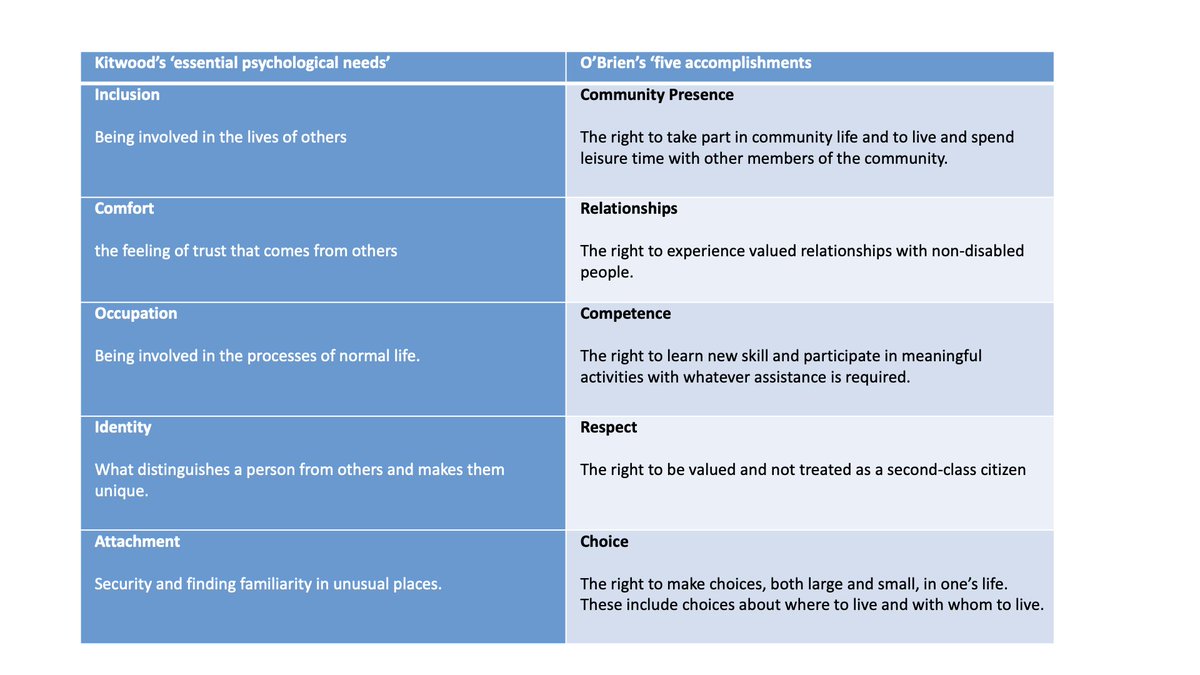
So the Archbishop of Canterbury is talking about *drawing on* care and support. My work is done @socfuture @AnnaSeverwright @EquallyOurs #FrameOn #AnEqualLife #ReimaginingCare
https://twitter.com/JustinWelby/status/1617878419114426369
Just a quick explainer here. When we (@socfuture) did our work to develop a new vision & narrative, we'd noted how social care was typically talked about as a place or destination e.g. 'people going into social care' socialcarefuture.org.uk/wp-content/upl…
If you listen to Ministers over the past month talk about hospital discharge, they're using this language again as they did during Covid. It also has the effect of positioning care as an end in itself, not as the means to others ends, and as something given or done to people.
So alongside other intentional shifts in language & framing we looked for something which positioned social care as the means to the end of living a good life in the place we call home, and as something within the control of the person whose life it concerns.
That's how we landed on 'draw on'. And it seems to have entered the lexicon really quickly. Nobody used this language before April 2021. It shows the power of reframing. 

Here's a blogpost explaining more about why it's important & how it shifts mindsets socialcarefuture.org.uk/want-to-help-c…. .
And here's our evidence-based guidance socialcarefuture.org.uk/wp-content/upl…
Posting this one again with Alt text (apols) "That's how we landed on 'draw on'. And it seems to have entered the lexicon really quickly. Nobody used this language before April 2021. It shows the power of reframing." 

• • •
Missing some Tweet in this thread? You can try to
force a refresh





